Long, long ago, the ever-lovely lady Shehanne Moore and her hamster brood nominated me for The Respect Award.

Such a reward requires questions answered, which I hope I can take out of order, since the questions led me to think some thinks that aren’t entirely respect-related, and this is a run-on sentence, so I best likely stop, shouldn’t I?
Who do you respect the most?
Now this I can confidently answer: my friend Rachel. She dedicated herself to God’s Calling back when we were teenagers, and had been teaching in a two-room school in a small Nebraska town for ten years when a brain tumor wrapped its tentacles around her brain stem. Again. And again.
Yes, she’s been under the knife three times. She struggles to speak and walk. She may never be able to hold up her head again, since her neck muscles have atrophied. She had to step down from the ministry, never to return.
Now this would be the point where, at least I think, you give God the finger and tell Him to piss off. I gave my life to YOU, and You give me THIS. Fuck. You.
Nope. Not Rachel. She’s still determined to live on her own once the therapists give the okay, and tutor children. She looks to God, and hopes.
To lose your body and mind for months and struggle to find footing outside that which you’ve known all your life…to go through all that, and not lose faith…
Damn.
What is respect and what does it mean to you?
Right, so this question is weird for me to answer, and I’m not even sure why. My initial thought is: 4th Commandment. Honor the elders, and so on. Believe you me, that was instilled in we pastor’s children at a tiny age. I’m 34, and I STILL can’t refer to my friends’ parents by their first names despite their requests. Hell, I called my father-in-law “Sir” until Blondie was born. First names are informal, see. Respect starts with the address.
Listening, too. Listening is respectful. Visiting the old lady down the street because she goes to our church, sitting in a room shaded by thin white gauzy curtains, a room the shade of canned peas with that carpet and furniture that seemed to sap color and spoil it on the spot, the air heavy with cats who died years ago–
–and listen.
Not that I remember what she said. Respect is a lot of show at times. I learned that quickly: situate the body, say the right words, and inwardly back away. Away from the eyes and senses, and fly, over and through the firmament. Land in a world I build one rock at a time. Get back to work.
Nowadays, I DO listen. Hard. It’s the faith in the words of others where respect transforms into a weapon, the most valuable weapon I have. So many of you have only known me through my words. You met me here, befriended me here. For the few who’ve known me before I started this online venture, you know I love you, but you KNOW me. Your friendship and kindness put this syrupy taint on the comments you give on my writing. I’m compelled to purse my lips and think, you’re too sweet, you’re just saying that because you’re my friend…
For those who’ve met me here, your words come completely of your own volition. You would feel no need to say something unless you wanted to say what you really thought. For so, so long, I always took a compliment as “I’m just doing God’s duty,” “you’re just being nice,” “you don’t really know me.”
But you do know me. You have given such outpourings of thoughts and ideas on your writing, and I’m compelled to give them back, and this sharing of sparks sets all the dark woods ablaze, burns away the black fog, sending it hissing in retreat. The stars reflect our sparks, we are the true lights of the heavens–
Respect is what I use to hack at the self-doubt. Because I respect you, I should believe you in what you say. And if you say, in no uncertain terms, that I am meant to do what I do, well then. Time I respect, and therefore defeat, that which holds me down.
What do I respect about myself?
This is the work-in-progress part. One of the reasons I held off on answering Shey’s questions is because I didn’t know how to answer this one. Lucky for me I hit a milestone not too long ago.
In the past few blogs I’ve mentioned my decision to finally try fiction again: a Middle-Grade fantasy story based on Michael Dellert’s Matter of Manred series. I’ve been posting my freewrites on my facebook page to help deal with my fear of sharing fiction. If I can be okay sharing the extremely rough stuff with others, then putting polished scenes out shouldn’t be so terrifying.
Once I finished Michael’s #13WeekNovel protagonist prompts, I started to work on the setting. The first freewrite didn’t go too terribly, even with the history gaps…
When I wake up, I smell old dung and hay. Scratched from the wool. Redo the braid that at least holds some hair back.
I have to share a room with Nutty, who snores, by the way. I’ve asked for a spot in the barn loft. Nope, not proper.
Damnation.
At least I only need this space to piss and sleep.
Speaking of…
Oh…it is so, so tempting to empty it upon her. My hand actually steadies at the thought. But then the whole room would smell.
Ah, well. Not worth it.
Best to dump just after Fiachna passes….There. That’s dumped.
And with Fiachna’s morning curse at my window, it’s time for the kitchen.
Down the stairs—watch it, the third from the bottom creaks, so best to leap down. White walls, we have one large tapestry made by Dud’s mother before she died. Saffir is Nutty’s mom, the one still around. She’s got her own in the works. Funny how each focuses on the kids: baby Dud’s discovery of an ermine nest on this one. How nice of the family to donate their lives and live in posterity as Father’s coat.
Not sure what Saffir’s making, though Nutty’s in the corner. Probably her talking to birds. Or ghosts. They’re both a touch off, if you get me.
I smell elderberries and hyssop from the fields. Hops, dandelions, and yarrow.
Our furniture is simple, for Father’s tastes are pretty functional which, really, is all this thorp can afford. Not that I mind. One thing, though: the mantle over the fireplace tells a story. It’s a battle of ____. My grandparents fought alongside Terrwyn against ______. They all three survived, but I’m told my grandmother was besot by nightmares ever after. Terrwyn had a hand in helping with Father’s upbringing, and in one of my grandmother’s final lucid moments, promised to keep an eye on him ever after. I can’t believe she would have stayed here otherwise as some lowly tinker.
Not that she sees herself as lowly. And no one would be foolish enough to call her that. And if someone did, Cinaedh would slice his manhood off.
Strange how Father came from such strong people, and can surround himself with good people.
And still be such an ass.
But I’m a middler, and the child of no one special in his eyes. My opinion is of little worth here.
So let’s go into the kitchen, where herbs hang from the beams and there’s always water hot for tea. Grab yourself some elderberries. Watch the spout, it’s got a chip there.
Here. This doorway? This, this is the best view of the thorp. The front door just takes you to a wide circle of thatch roofs and buildings that are old, but solid. Aberfa’s pottery workshop’s the newest thing, and even that’s several years old now.
That’s why I always come out from here. Demman doesn’t mind, so long as he didn’t want the bench for himself.
Watch the grass and flowers bend with the breeze downward. Follow with the slope to the River Aurnia. There’s the mill at the outermost point of the thorp, aaaaand, yes, that’s Aberfa with Bryn, the lady miller. You can bet master miller Pyrs is already in there, loading grains. Kids aren’t quite awake yet—you’d hear them arguing.
I don’t really dwell on the mill when I’m out here. I don’t dwell on the thorp at all, really.
I dwell on that, past the River Aurnia. See that? The Woods of Irial. No, it’s not mystical, or full of beasts, or the gateway to Annwn. It’s just far-reaching. Some smaller thorps are even inside it, and its southernmost, according to the drymyn, is this little place called Bailecrwth.
That’s where I’m going to go to find my mother’s family, if there are any left to find.
And south of them is the Beaumains tribe. They are the reason my mother fled and found herself here. They are the reason Father found my mother, took her, and put my creation into the works.
Dour talk for sunlight transforming the field into gold shimmers and diamonds from the dew. You’d think the sweet sharpness would ease my tongue.
Well it doesn’t.
Every day, I look past this thorp to the place I need to go, for I have a blood-feud that must be resolved. I refuse to carry this with me to the grave. They wronged my mother. Their sins drove me into existence.
They have to pay.
 Life called: teaching, mothering. It took a few days before I could return to Seosaim. Initially blank, so I opened my copy of Brother Cadfael’s Herb Garden and let the flowers inspire me.
Life called: teaching, mothering. It took a few days before I could return to Seosaim. Initially blank, so I opened my copy of Brother Cadfael’s Herb Garden and let the flowers inspire me.
It starts with eglantine.
Beautiful, aren’t they? Sweet as apples, and pleasing to the eye.
Banon, Dud’s mother, planted them here along the fence. Not sure why the fence; it doesn’t exactly keep anyone out, being vines and posts, but it’s a fine thing. Gentle, like she was. I’ll see Father out here sometimes, look upon this living boundary, and tear up.
She must have been quite a woman, to make a man like him cry.
So, down the slope. Let’s open the gate. Don’t worry, the vines are flexible.
The river’s quite full of fish—trout, mainly. A few leeches. Turtles—watch for them. Don’t step on the Alkanet—you’ll put Nutty and Saffir out. They insist on it for their faces.
The tumain keeps a few fruit trees on the edge of Irial. I’m honestly not sure who planted them—the trunks have this look of gnarled veins like the jeweler Cranog, but I don’t think pear and cherry trees came along on their own. Once I heard Father telling Dud that his proper namesake planted them to honor the river goddess. Not sure what this fruit has to do with her. Do gods eat?
Further in, when we’re brave, we can get the Damson fruit. I used to enjoy going in there…and then the…
Damn you hands, STOP SHAKING
The Cat-Eyed Man. I’ve told you about him.
I refuse to let the miller’s children go in there anymore without an escort, being me. They know what I did, so they always want me along when they go past the eglantine. Even Dud won’t bother with the woods, and HE is the one who’s supposed to hunt. So Fiachna’s left to scrounge up game whenever Father decides to teach the hapless twit how to hunt.
Me? I go in.
I go in alone. My hands may shake, throw my body into a quake, but I. will. Enter. Part of revenge is fearlessness. One can’t be afraid of meeting one’s own death. One can’t be afraid of looking evil in the eye, and pulling that eye out with one’s own fingers.
Follow me here.
Hmph.
I didn’t like it.
Something felt wrong.
The…voice. DAMMIT, the voice was missing.
I sent it to Michael, and he agreed that the tone had changed. “Maybe you’re exploring a new aspect of her character.”
I read it through again, tried to apply Michael’s suggestion to the feeling around the words, but no. No, it was wrong.
This wasn’t Meredydd. Not Mer at all. Where did she go?
And all the old panic came back, the failed WIPs of the past because the voice never. fucking. stuck. Years of looking, trying, finally getting, and then….gone.
And here I’m barely a month in, and already going tone-deaf with Mer. She’s not pretty with words. She’s 16, and she’s an overlooked, unwanted middle-child in her home. She’s cocky. Stubborn. Angry. Kind to some, yes, but even they can’t always handle her. Such a girl would never, EVER talk like this.
No.
No, I’m not going deaf. Not this time.
Michael suggested going back to the early freewrites, where Mer’s voice was clearest.
I listened to him, listened to myself, and…
Well?
Are you coming?
The damson trees grow a ways in. You carry the basket. I’ve got my dagger, and I keep a staff in the woods, just in case. Easy enough to hide, wood in a wood.
Why should anyone else find it? No one will go in here but drunken men and the miller’s children, and none will go in on a dare, or without me.
That’s right. Me. Ever since the Cat-Eyed Man, everyone else in the thorp sees the woods of Irial and thinks, “Get Mer.” Gods, I think this is the only way I matter around here…Demman likes to call me the Honey Girl with the Barbed Tongue because I give him plenty of grief whenever he asks me to fetch some.
Yes, that’s why I have this bucket. Hush, I can reach my dagger easily enough.
It’s all about duty…watch the leaves, there. And don’t step there, it’s a bit of a small sink hole…the roots of the fruit trees have done strange things to the soil. It’s always moist, ready for planting. Not sure why, the river’s back quite a ways. Could be the trees. Fychan said once that if something ever happened to tumain, we could all live in the woods and never need for shelter. The leaves, you can see them, are as large as a mare’s hooves. You should see this place come autumn, when the green is burned over with reds and oranges, lots of orange. Damnation, but I miss the autumn, and the smell of the sap for tapping.
Sorry. I get very lost in feeling here.
For all the niceness back there…yes, there…with the flower fence and smoking chimneys, it’s not home. It’s never felt like home. At least in the workshops I’ve been useful—Aberfa lets me keep her company, and Terrwyn will tell stories when I help her haul wood for fires. But this…what is Seosaim but a place where I was nursed and let loose, like the runt of a litter?
DON’T STEP THERE. Can’t you pay attention? You’re going to attract the wolves, walking like that. By the gods, just…no, walk on front of your feet. Your toes. Yes, like that. Pish and shit, you’re worse than Terrwyn, and she’s the one with the iron leg.
Yes, there are wolves in this wood. I think some wild dogs, too…Luc saw a pack a month or so ago and insisted they were too small to be wolves. No one listened to him, of course, but I’m a generous soul DON’T TOUCH THAT. Don’t you know poison oak when you see it? Ye gods, you’re dim. Feel like I should have you on a leash.
Where was I? Oh, yes, being generous. I am. I’m a wonderful listener, and let Luc say all he saw. Don’t underestimate those children. For all their bickering, they’re extremely quick, observant, and smart. Braith nearly made off with twenty gold coins from a merchant once because he was too dull to notice his money chest opening and closing. And I’m not even going to start on Drys. He’s either going to be a master thief, or a master…hmm. Assassin, if he ever gets the taste for blood. Either way, he’s never going to stay on the sunny side of the law.
Finally…you can feel we’re in the woods proper now. Everything’s got a touch of water to it. I like that feeling, that life-feeling of water in the air I breathe, the grass I touch. The sun can’t reach here, the trees are so thick. The whole world’s dark and soft. And here, in this place, my hands don’t quite shake as bad. Maybe there’s a dark magic here, and that darkness knows my intentions, and allows me to steady myself and practice.
Care to see?
Pish, we have time, set yourself down. Pick the centaury—that nettle-like plant there—take up a few chestnuts, and let me move.
Ah….I miss having good hands.
What do you mean, stalling? I am NOT stalling. We have all morning to fetch the honey from the Black Glen—Druce named it—no not the Messor, the Constable, the one who actually WENT there—and the name stuck. What a gods-awful name. Oh, no, a black place, how frightful…
They didn’t SEE the Cat Man. They didn’t SEE how the blackness, like this, like a cave the moment after someone blows out the candle. They didn’t THAT seeping out from him or the stag, how it overtook the stag from the inside out, how it transformed trees into serpents, fingers, all a part of him, abiding him, and not the gods of nature.
And you didn’t see it either, so if I want to practice some moves before we go to THAT place, then I’M GOING TO BLOODY WELL PRACTICE. Shut up and eat your chestnuts.
I ended there, and felt different. Strange, a good strange.
I had listened to myself, believed myself, and it paid off.
I was starting to respect my instinct.
I could get used to this.
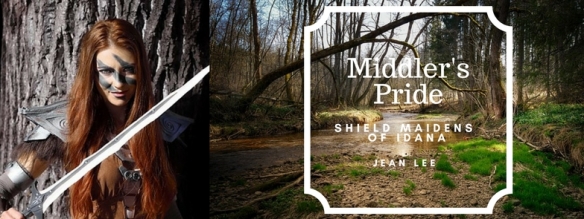
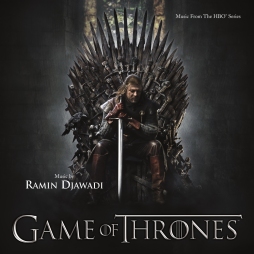 Bo and Blondie return as I finish up the dishes. Both have sticks and bits of pink frosting about their faces. Pink frosting + sticks = cake pops.
Bo and Blondie return as I finish up the dishes. Both have sticks and bits of pink frosting about their faces. Pink frosting + sticks = cake pops.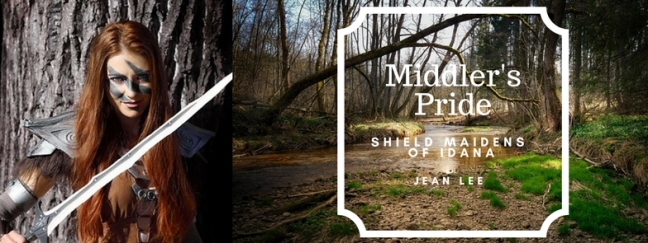

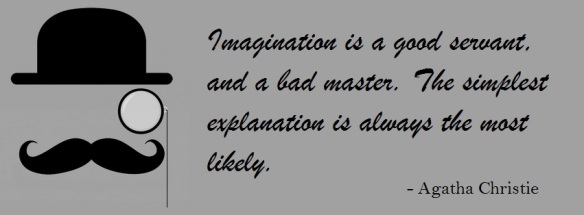 I admit that I still confuse “unlikeable” with “unreliable” every now and again. An “unlikeable” narrator is not so much a twit as an asshole. One we just can’t bring ourselves to care about. If the story swallows him up, good riddance. If he gets away with it, then we enjoy imagining how he’ll get his comeuppance in the unwritten pages thereafter.
I admit that I still confuse “unlikeable” with “unreliable” every now and again. An “unlikeable” narrator is not so much a twit as an asshole. One we just can’t bring ourselves to care about. If the story swallows him up, good riddance. If he gets away with it, then we enjoy imagining how he’ll get his comeuppance in the unwritten pages thereafter.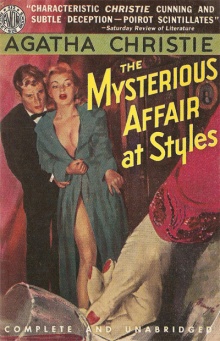 Agatha Christie’s creation of Hastings is,
Agatha Christie’s creation of Hastings is, 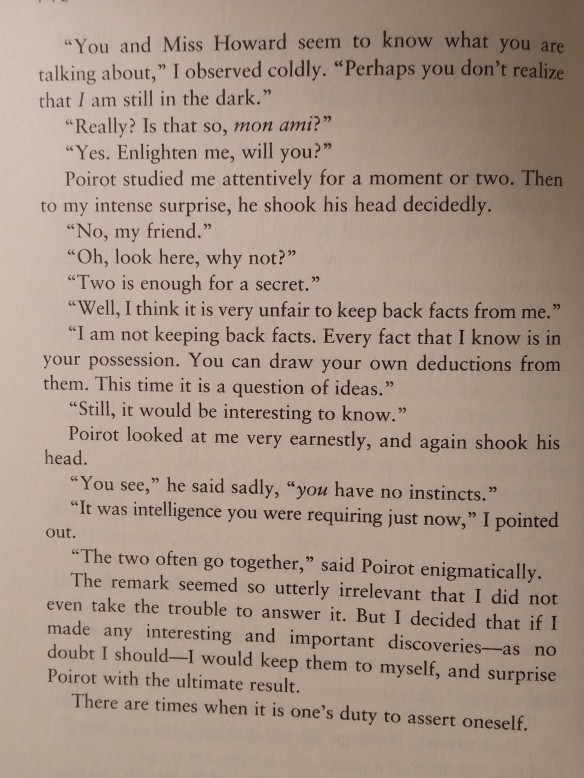
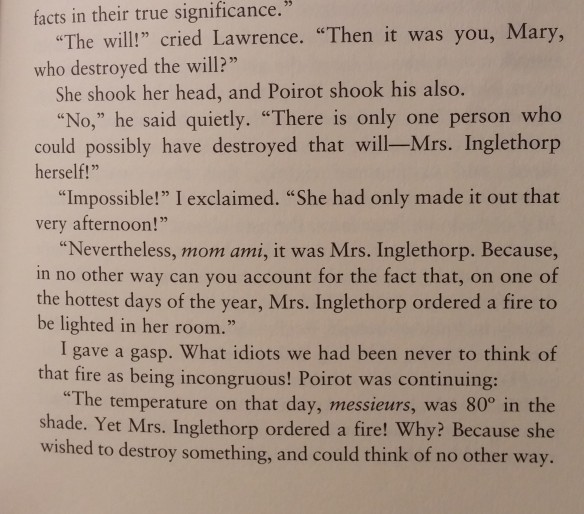
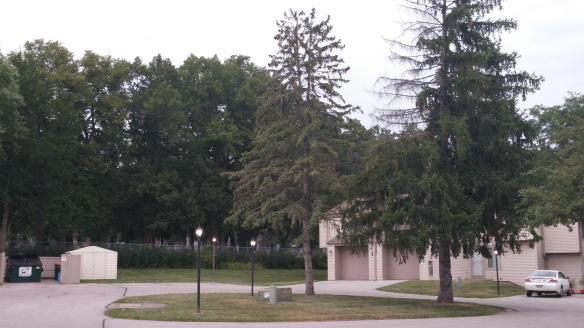

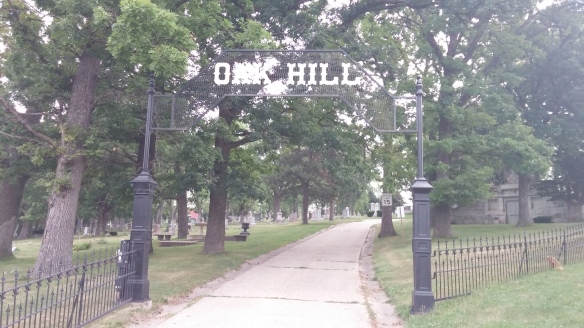
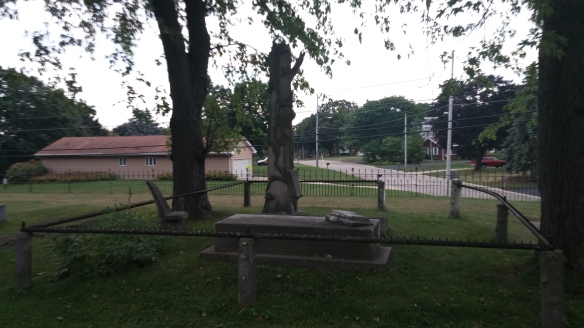







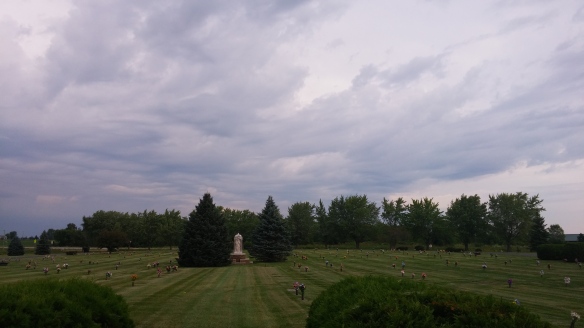
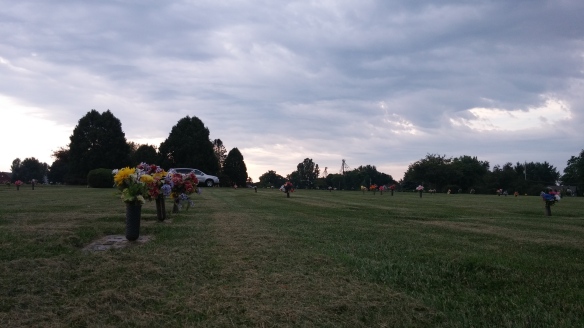
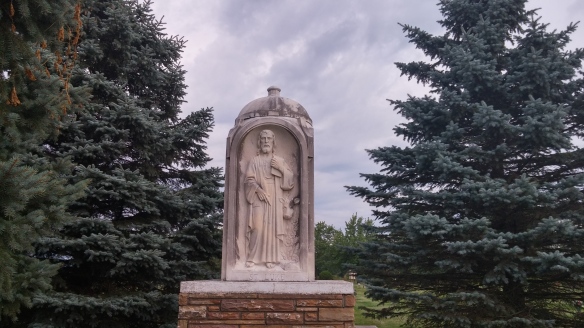
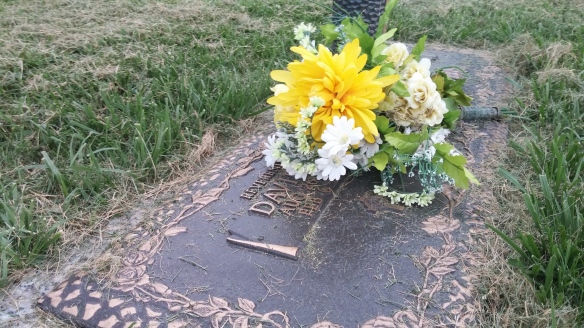

 Life called: teaching, mothering. It took a few days before I could return to Seosaim. Initially blank, so I opened my copy of
Life called: teaching, mothering. It took a few days before I could return to Seosaim. Initially blank, so I opened my copy of 